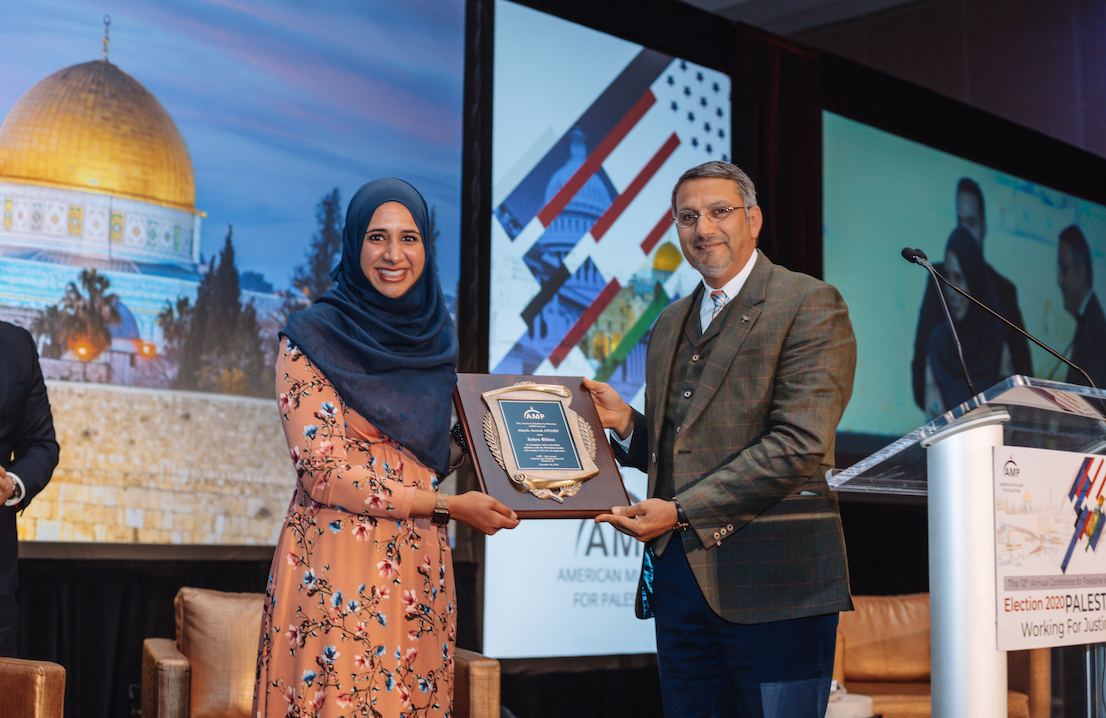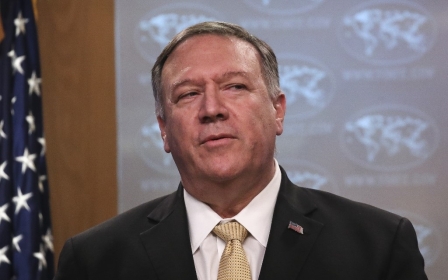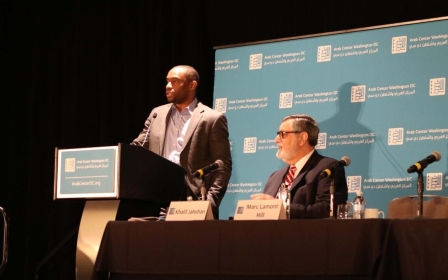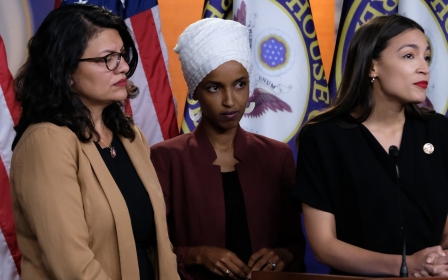American Muslims to Democrats: 'Palestine is a foreign policy priority'
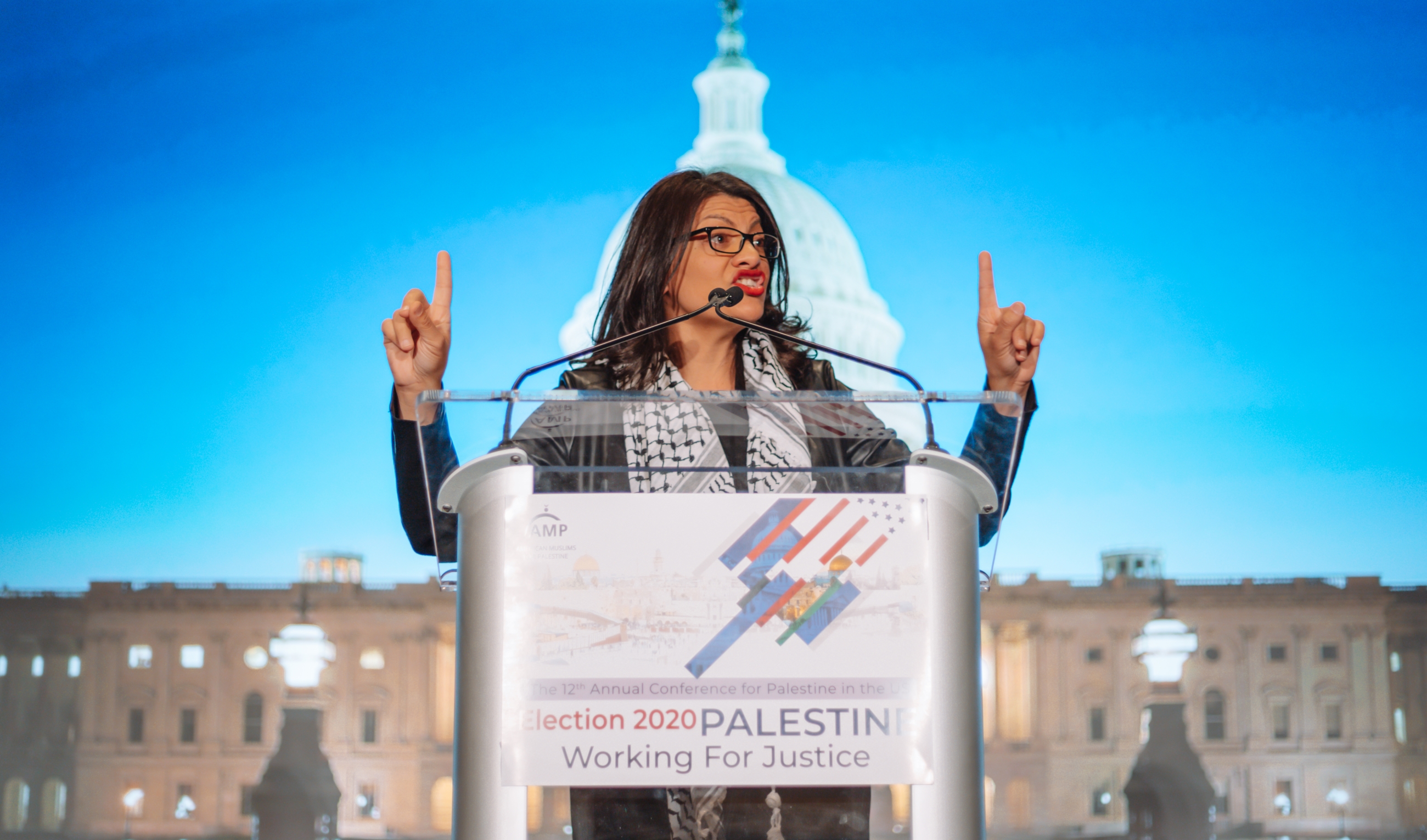
Activists and academics gathered in Chicago over the weekend for the 12th annual American Muslims for Palestine (AMP) convention, calling on American Muslims and the Democratic Party to prioritise Palestine as a foreign policy issue.
Those present at the convention overwhelmingly expressed the view that if a Democrat is elected president in 2020, the momentum built in the last few years over issues impacting Palestinian self-determination needed to be carried into the White House.
The conference, organised by AMP, a national, grassroots organisation focused on educating the public on political and cultural issues related to Palestine, featured speakers like academic and television personality Marc Lamont Hill, activist Linda Sarsour, lawyer Zahra Billoo, and Palestinian-American congresswoman Rashida Tlaib.
Over 3,500 people from across the US registered for the three-day convention, organisers said.
Though the importance of American Muslim civic participation ahead and after the 2020 election dominated discussions at the convention, other key issues raised included Israel’s recent spate of bombings in Gaza and the US government's decision to no longer consider Israeli settlements in the occupied West Bank illegal.
New MEE newsletter: Jerusalem Dispatch
Sign up to get the latest insights and analysis on Israel-Palestine, alongside Turkey Unpacked and other MEE newsletters
The conference made special reference to the shifting sentiment towards Palestine, especially among the Democratic Party’s younger base, who increasingly see the forced separations of children from their parents at the US-Mexio border and treatment of African Americans as synonymous with the brutality meted out to Palestinians.
'Interconnected oppression'
"Do you know what I saw at the [US-Mexico] border? I saw Gaza," Palestinian-American Congresswoman Rashida Tlaib, said during her keynote address on Saturday.
"When you think about the border, you have to got to understand how interconnected the oppression in Palestine is with the oppression taking place at the border," Tlaib said to applause from the packed crowd.
Organisers and delegates said Tlaib's presence at the convention signified the tremendous shift in the way in which Palestine is being discussed in the US today. The rise and rise of Tlaib and fellow congresswoman Ilhan Omar, and their willingness to speak openly about Palestine, shows that the issue is no longer as peripheral as it once was.
“To see Democratic nominees Bernie Sanders and Julian Castro speak at the Islamic Society of North America (ISNA) conference [in September] illustrates the shift in the Palestine discourse in America,” Hatem Bazian, a senior lecturer at the University of California, Berkeley, says.
The election of Omar and Tlaib into Congress and their mainstreaming of Palestine has helped mobilise and motivate a new generation of youth to enter politics and encouraged Muslim Americans to run for political office. But others noted that it was still significant that none of the Democratic nominees for president had shown their support for the Boycott, Divestment, Sanctions (BDS) campaign, nor have they expressed their support for Palestinian right of return.
“There is still a lot of room to educate and there is scope to do it in the Democratic Party,” Josh Ruebner, a political analyst, said.
"Her [Tlaib] coming here and endorsing this cause despite all the attacks she has faced also shows that Palestine is no longer a liability and rather an asset,” Bazian said.
Conference organisers from AMP said that this 12th incarnation marked quite a shift from its early days as a small, modest affair featuring community leaders. This weekend's event was big, featuring speakers from across the US and multiple organisations, and including training programmes for young activists and activities for children as well.
Deanna Othman, media coordinator for AMP, told MEE that conference organisers deliberately put together a programme that spoke to the different needs of the community.
“The activities here are essential for our growth,” Aya Ali, a 21-year-old student at Benedictine University in Lisle, Illinois, who attended the events geared for students, said.
Ali told MEE that the convention was "one of the biggest resources for equipping student activists to educate and change the narrative about Palestine on our campuses.”
Rifqah Falaneh, a student from DePaul University, the largest Catholic university in the US, agreed.
“It is not only about learning, but it is also about connecting with other young people because there are so many different universities from across the country. It is cool to see what other students and leadership bodies are doing on these topics", the 21-year-old said.
Activists cautioned the community from expecting too much from the Democratic leadership with regards to Palestine, as they had done previously with the election of Barack Obama in 2008. They also expressed concern that even if Trump were to be voted out of office, it was highly unlikely a new administration would reverse the decision to move the US embassy to Jerusalem or its stance on settlements.
But Ruebner, the activist and analyst from Washington, says the only way forward is to continue insisting that Palestine remains a central foreign policy issue with all Democratic Party nominees.
“So if we have a Democratic Party candidate entering the White House, then he or she would have to carry the Palestinian mandate,” Ruebner said.
Middle East Eye delivers independent and unrivalled coverage and analysis of the Middle East, North Africa and beyond. To learn more about republishing this content and the associated fees, please fill out this form. More about MEE can be found here.


